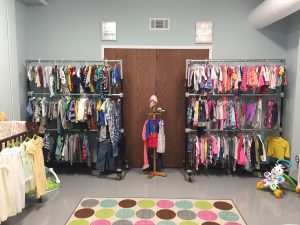
In my seven years experience living in foster care and the two years I spent working for DSS as a case manager, I came across some amazing foster parents. Unfortunately, I also came across some who were not. Looking back, I can see clearly the qualities that are essential for a foster family to create a safe and loving environment for kids in care.
1. Foster Care Should Never Be Viewed as an Income Source
I wish this one was self-explanatory but unfortunately in my experience it isn’t. Some of the most hurtful fostering situations I lived in made it apparent I was viewed as a paycheck, not as a person.
Here is the truth— the state issued living stipend is not enough money to make foster care worth it if the motive is financial gain. Point Blank. While the living stipend helps with the costs of caring for a child, it is not enough to cover both clothing, hygiene products, school supplies, travel, time and commitment AND make an income. If financial gain is a motive, it will only ever occur at the neglect of a child, the very thing foster care is meant to protect children from.

Speaking as a former foster child, kids already have doubts if foster parents actually care or are fostering for an alternative motive. If kids hear talk about how much the state pays, or (and this happened to me on many occasions) they only receive new clothes every three months when the state issues a $100 clothing allowance check, it’s painfully clear they are seen in terms of cost-benefit. This is hurtful to a child.
2. Treat the Child as a Member of the Family
Another one that I wish was self-explanatory! Children in foster care should be treated like all other children. They should be included on family vacations and trips, and treated the same way as biological children (if there are biological children).
Children in foster care are intelligent, intuitive and extremely observant. They already feel like outsiders when they enter a foster home and if they feel singled out or treated differently than others, emotional walls will go up and it can be very hard to break those down.

3. Persevere Through the Rough Patch After the Honeymoon Phase
When a child enters a foster home, there is often a honeymoon phase. I compare it to a first crush on someone or the start of dating. It’s easy to only see the great things about one another; but after some time, natural flaws start to show. There are things the person does that are annoying and grate at nerves, and there will be a new awareness of what makes the other person tick. But if you are committed, you always love the great things about them, what they do to make you laugh, what you appreciate about them, etc.
Foster Care is a lot like this. When a child first moves into a foster home, both sides are testing the waters to see how the dynamics will work. Kids may be on good behavior, but the more comfortable everyone becomes with one another, the more everyone will see each other’s genuine selves. Children in foster care want to see if they are sincerely cared about or if there is one of the alternative motives I talked about earlier. If this testing period is toughed out and foster parents are willing to weather this rough patch, children will see and believe they are cared for. They will begin to recognize the stability foster parents are offering in their lives. This is where the magic happens! If foster parents will love through the rough patch phase, I believe children will remember their foster parents well for the rest of their lives, regardless if they lived with them for 6 months or for 6 years.
All the important people I hold in my life I met through foster care. We have been through amazing times but also some rough times, they called me out on stuff, but they also showed me love and mentorship. Foster children are scared, as I was as a kid. They just want someone who loves from a genuine place, and can be trusted and relied on.

If YOU choose to become that kind of foster parent, you will be held in the hearts of children forever.



